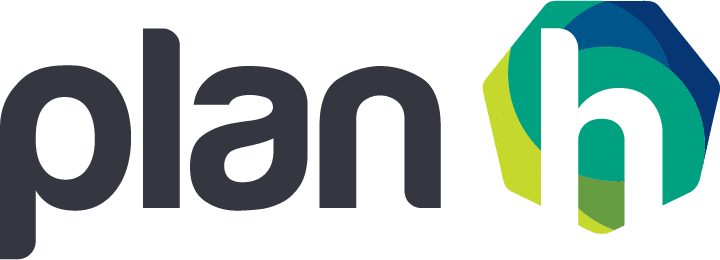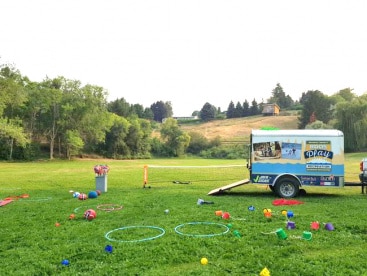Physical literacy is increasingly being recognized as a key component of healthy living, and the Regional District of Okanagan-Similkameen (RDOS) is leading the charge in designing recreational programming that encourages residents of all ages and abilities to be more active. Over the past several years, the region has undertaken numerous physical literacy initiatives, including the introduction of a physical activity trailer that brings sports equipment directly to communities.
Initiatives like the activity trailer are a part of the region’s larger strategy surrounding physical literacy, aptly named Physical Literacy and You Okanagan Similkameen (PLAY OS), which grew out of their earlier recreational strategy, RDOS Play. The PLAY OS program strives to advance physical literacy opportunities in communities and is supported by PlanH, BC Healthy Communities, the BC Ministry of Health, the BC Alliance for Healthy Living and Sport for Life.

PLAY OS aims to create opportunities for all community members in the region to become physically literate through inclusive programming, policies, and services. The program strives to align the key sectors of education, media, health, recreation and sport to promote the benefits of physical literacy. Retired RDOS Recreation Manager Shona Schleppe, who believes the region is prime for physical activity, worked to find new ways to engage communities in fitness initiatives.
“The Okanagan Valley is really ripe for physical activity and it just happens inherently. What we were able to do was have purposeful programming, we were able to work with our municipalities and rural areas to create programming that would meet the needs of the communities,” says Schleppe.
The region is striving to reach all ages and demographics in their outreach and education initiatives, reflecting findings from their research that indicate parental knowledge of physical activity is heavily correlated to their children’s activity levels.
“We just know that so much of the research indicates that if they are physically literate when they’re young, there is a high correlation to being active for life. If youth can have the confidence, the competence, the motivation and the understanding of being active this will continue for life resulting in more durable and resilient adults,” says Schleppe.
Schleppe, who brought 23 years of experience as a sport development director, understands that it takes a village to create the kind of widespread change they’re pursuing. In particular, trained coaches and volunteers are crucial to the success of PLAY OS.
“If you don’t have quality instructors and community champions then you don’t have a program. Really quality leaders are important,” says Schleppe.
The collaboration and partnership required to implement regional changes is significant, especially when undertaking multiple initiatives. In addition to PLAY OS, the region is also undertaking other projects to promote physical activity:
- a regional walking strategy, which includes hosting a Regional Walk and Roll Week;
- a First Nations engagement strategy focused on building connections between school districts and Indigenous communities, along with distributing PLAY boxes with activity equipment to each Indigenous school in the region;
- a child & youth engagement strategy, including “try it” days and the use of school facilities after school hours;
- an older adult initiative, including “try it” days and mentorship programs; and
- physical activity assessments, with results available to view on the RDOS website.
Collaborating with community members and incorporating their knowledge proved successful, as the region was able to gain access to instructors, programming and facilities.
“Within our region we have a number of major cities as well that have recreation departments. We worked collaboratively with those individuals to understand what was working, share resources and coordinate leadership programming and development. So we wanted to leverage kind of what they were already doing, but also the knowledge that they had of the community, their access to instructors or their access to leadership programming and development, because that was a big piece,” says Schleppe.
For more information about PLAY OS or other RDOS recreation strategies, visit the RDOS Recreation website.




